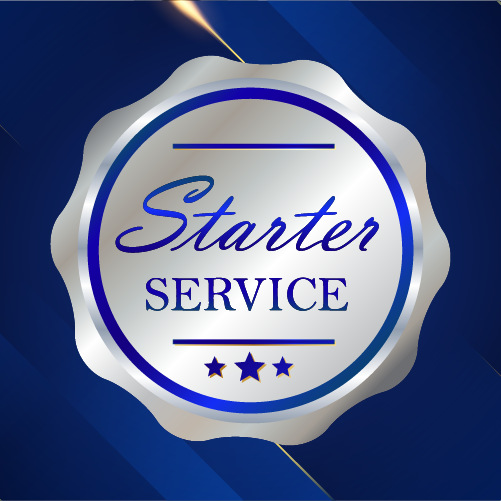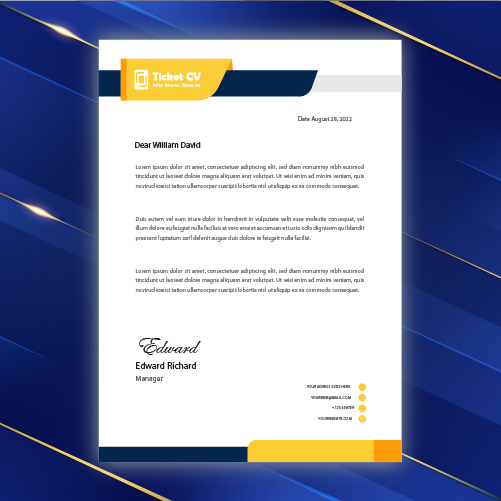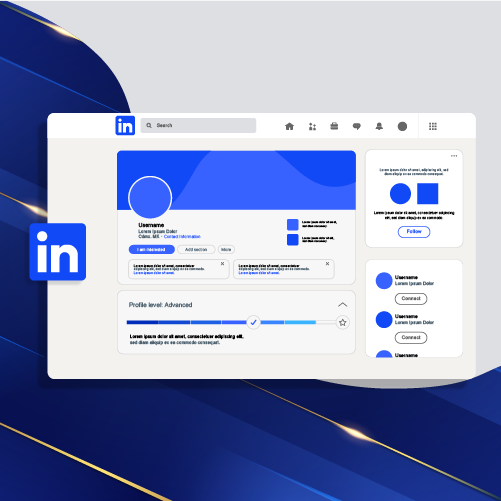Phone interviews are a pivotal step in the hiring process, often determining whether a candidate progresses to an in-person meeting. Typically lasting between 15 to 30 minutes, the recruiter interviews the interviewee to assess qualifications and determine cultural fit. However, the time duration can vary based on the job title’s seniority and complexity. Factors such as the number of interviewers, depth of questioning, and time also influence the length.
How long do phone interviews last, interviewer, last is crucial for candidates to adequately prepare and manage their time effectively. By being aware of this timeframe, individuals can ensure they are concise yet thorough in their responses during a job interview, leaving a positive impression on potential employers.
Contents
ToggleUnderstanding Phone Interviews
Phone interviews are a vital part of the interview process. They serve as an initial screening method used by employers to assess potential candidates before deciding whether to invite them for in-person interviews. There are different types of phone interviews, including screening, remote, and initial interviews. The primary purpose of a job interview is to evaluate the candidate’s communication skills.
Screening phone interviews typically last between 15 to 30 minutes, allowing the interviewer to quickly gauge an applicant’s qualifications and interest in the position without investing extensive time or resources. Remote phone interviews are conducted when time and distance makes it impractical for an in-person meeting, while initial phone interviews help employers create a shortlist of candidates who will move on to the next stage.
Assessing communication skills during a phone interview is crucial since it provides insight into how well candidates can express themselves verbally, their tone of voice, clarity of speech, and ability to articulate thoughts concisely.
Duration of Phone Interviews
Average Length
Phone interviews typically last between 15 to 30 minutes. However, the duration can vary based on the job level and complexity. For instance, initial phone screenings, or call, are usually shorter, lasting around 15 minutes, while more in-depth interviews for higher-level positions may extend to 45 minutes or more.
The average length of an interview is influenced by various factors such as the complexity of the job role, which can impact how long a call lasts. The number of interviewers involved in the call process may affect its duration. For example, panel interviews conducted over the phone call might take longer due to multiple individuals asking questions and evaluating responses.
Influencing Factors
Another factor that influences the length of a phone interview is clarity in candidate responses. When candidates provide clear and concise answers, it can streamline the conversation and potentially shorten the overall duration of the interview. On remote jobs specifically, where physical interaction is limited compared to traditional roles, phone interviews may be longer to thoroughly assess candidates’ qualifications and fit for remote work environments.
Interviewers aim to respect both their own time constraints as well as those of job candidates by keeping phone interviews concise yet comprehensive. This approach ensures that essential information is covered without unnecessarily prolonging what could be accomplished within a reasonable timeframe.

Pre-Interview Preparation
Research and Rehearsal
Before a phone interview, it’s crucial to research the company thoroughly. Look into its background, culture, and recent news. This will help you understand the organization better and tailor your responses effectively for the next interview. Familiarize yourself with the job description to align your skills and experiences with what the role demands.
Practicing responses to potential questions is essential for a successful phone interview. Prepare answers for common phone interview questions, such as “Tell me about yourself,” “What are your strengths/weaknesses,” or “Why do you want this job?” Rehearsing these responses will make you more confident during the actual interview.
Technical Setup
Ensuring a stable phone connection is vital for a smooth phone call. If possible, use a landline to avoid any potential disruptions that may arise from poor mobile reception or battery issues. Test the audio quality beforehand and eliminate any background noise in your surroundings by choosing a quiet space for the call.
It’s also wise to have a backup plan in case of technical issues during the interviewing process. This could involve having an alternative contact number ready or being prepared to switch to another communication method if necessary.
Effective Interview Strategies
Use Clear and Concise Language
When interviewing over the phone, it’s essential to use clear and concise language. Avoid rambling or using overly complex sentences. Instead, focus on delivering your points in a straightforward manner.
Effective communication during phone interviews involves expressing yourself clearly without unnecessary jargon or long-winded explanations. By doing so, you ensure that the interviewer fully understands your responses.
Active Listening is Crucial During Phone Interviews During phone interviews, active listening plays a crucial role in effective communication. It’s important to listen carefully to the questions asked by the interviewer before providing your response.
Engage in active listening by focusing on what the interviewer is saying, avoiding interruptions, and demonstrating your attentiveness through appropriate verbal cues such as “I see” or “That makes sense.”
Ask Clarifying Questions When Needed As an interviewee during a phone interview, don’t hesitate to ask clarifying questions if something is unclear. This demonstrates your interest in understanding the question thoroughly before providing a well-thought-out response.
By asking for clarification when necessary, you show that you are attentive and committed to providing accurate and relevant answers during the interview process.
Be Prepared to Discuss Your Experience and Skills In phone interviews, be prepared to discuss specific examples of how your skills align with the requirements of the position. Highlight relevant experiences from previous roles that demonstrate your capabilities.
For instance, if interviewing for a customer service role, provide examples of how you effectively resolved challenging situations with customers in past positions.
Address Any Employment Gaps or Career Transitions If there are any employment gaps or career transitions on your resume, be ready to address these during a phone interview. Clearly explain any gaps due to personal reasons or professional development activities undertaken during those periods.
By addressing these proactively with honesty and transparency, you can alleviate any concerns the interviewer may have about potential red flags on your resume. Provide Examples of Your Accomplishments During phone interviews,provide concrete examples of accomplishments that showcase your abilities as they relate directly to job requirements. For example: “I implemented a new filing system which reduced retrieval time by 30%.”
Etiquette and Professionalism
Dos and Don’ts
When participating in a phone interview, it’s crucial to adhere to certain dos and don’ts for a successful interaction. Firstly, candidates should ensure they speak clearly and confidently throughout the conversation. This demonstrates professionalism and helps convey their skills effectively. On the other hand, interrupting the interviewer while speaking is considered impolite and can hinder effective communication during the interview process.
Expressing enthusiasm for the opportunity is another essential “do” during a phone interview. This shows genuine interest in the position, which can leave a positive impression on the employer. Conversely, using speakerphone during an interview is generally discouraged due to privacy reasons. It’s important to maintain a private location for the call as well as being cautious about sharing personal information.
Secure Connection
To create a secure connection during a phone interview, several measures should be taken into account by job seekers. Dressing professionally even though you are not seen sets you in professional mode mentally; thus finding quiet space with no distractions or noise is pivotal when participating in a telephone interview. Using a landline if possible ensures clear communication without any potential disruptions that may occur with cellular service or internet-based calls.
Having necessary materials at hand such as your resume, job description, company research notes will help keep you prepared throughout the conversation. Following up with an email expressing gratitude for the opportunity also leaves behind an impression of professionalism.
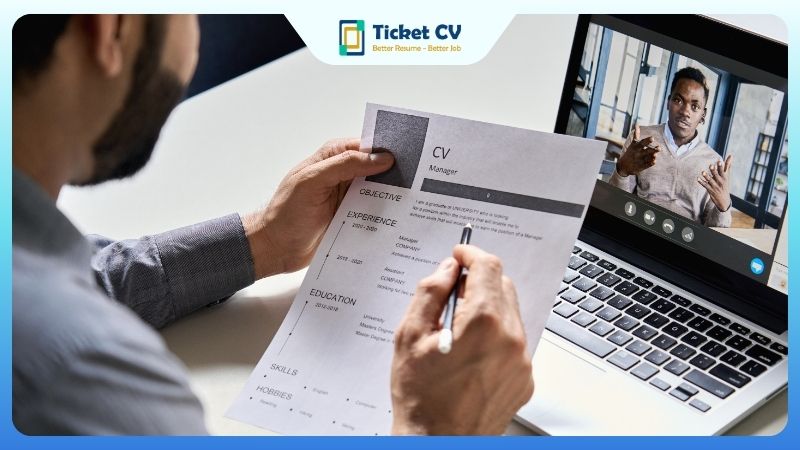
Handling Different Question Types
Job-Specific Queries
During phone interviews, candidates should anticipate job-specific queries related to the role they are applying for. These questions are tailored to assess the candidate’s suitability and understanding of the job requirements. It is crucial to be prepared to discuss relevant projects or achievements that demonstrate their skills and expertise in relation to the position.
For instance, if interviewing for a marketing role, expect questions about previous successful campaigns or strategies implemented. By highlighting how their skills align with the demands of the role, candidates can effectively showcase their qualifications and potential contributions.
Being familiar with industry-specific terminology and recent developments can help candidates provide more comprehensive responses during these job-specific inquiries.
Personality Assessment
Phone interviews also serve as a means for personality assessment by evaluating a candidate’s tone, demeanor, and communication style. While it is important to maintain professionalism throughout the interview process, it is equally essential to convey warmth and personability through responses.
Candidates should aim to strike a balance between professionalism and approachability in their communication style. For example, using an enthusiastic yet composed tone when discussing accomplishments can leave a positive impression on interviewers. This showcases not only professional competence but also an engaging personality that aligns with company culture.
Moreover, exhibiting active listening skills by acknowledging points made by the interviewer before responding demonstrates respectfulness and attentiveness – key attributes sought after by employers in potential hires.
Best Practices for Responses
Structuring Answers
Crafting concise and clear responses during phone interviews is crucial. Utilize the STAR method (Situation, Task, Action, Result) for behavioral questions to ensure a structured approach. This method helps in providing specific examples that support your answers. Keep your responses focused and to the point.
When tailoring your answers, remember to keep them tailored to the specific questions asked during the phone interview. Prepare for similar questions by conducting thorough research about the company and job position beforehand. By doing this, you can provide well-informed and relevant responses.
Impactful Questioning
Prepare insightful questions about the company or role as this demonstrates genuine interest in understanding team dynamics or company culture. During a phone interview, asking impactful questions can leave a lasting impression on the interviewer.
In addition to preparing thoughtful queries, it’s essential to follow up with a thank-you message after the phone interview. Expressing appreciation for the opportunity showcases good manners and professionalism.
Spontaneous Interviews
During phone interviews, unexpected queries may arise which require spontaneous responses. It’s important to stay composed when faced with such situations and take a moment before responding if needed.
If unexpected questions come up during a phone interview, use pauses effectively to gather your thoughts before answering spontaneously. This demonstrates composure and thoughtfulness in formulating responses even under pressure.
Navigating Unexpected Scenarios
Spontaneous Interviews
During phone interviews, unexpected distractions or technical issues may arise. It’s crucial to remain calm and composed in such situations. If you encounter technical problems, take a few deep breaths to regain your composure. Remember, maintaining a confident tone throughout the interview is essential.
If you’re feeling nervous due to unexpected distractions or interruptions, draw on your previous interviewing experience to help you navigate through these challenges. By staying calm and collected, you can effectively handle any unforeseen circumstances that may arise during the phone interview.
Maintaining Composure
After completing the phone interview, it’s important to follow up with a thank-you email within 24 hours. Express gratitude for the opportunity and reiterate your interest in the position. Inquire about the next steps in a polite manner.
When faced with similar questions or scenarios from past experiences during an interview, focus on providing clear and concise responses that showcase your relevant skills, accomplishments, and work experience related to the job role. This approach will demonstrate how well-equipped you are for handling tasks associated with the position.
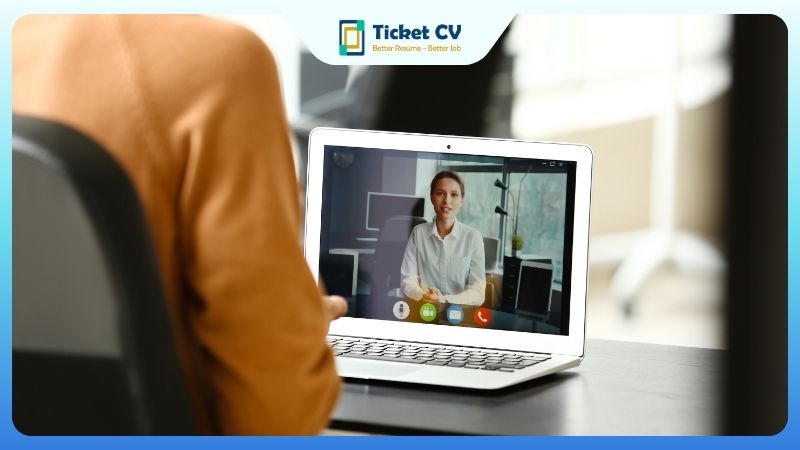
Post-Interview Actions
Follow-Up Etiquette
After the phone interview, it’s crucial to send a thank-you email or note to the interviewer within 24 hours. This simple act shows appreciation and leaves a positive impression. Reflect on the interview, jotting down key points for future reference. It helps in preparing for potential follow-up interviews.
Reflecting on your performance after the interview is essential. Identify areas of strength and those needing improvement. Consider seeking feedback from a trusted source, such as a mentor or career advisor, to gain valuable insights into your performance.
Self-Evaluation
Following the phone interview, it’s important to stay proactive by preparing for the next stage in the hiring process. If any additional information was requested during the interview, ensure you follow up promptly with all necessary details.
Summarize key points discussed in this article about post-interview actions: sending thank-you notes, reflecting on one’s performance, and staying proactive for subsequent stages in the hiring process are critical steps after phone interviews. Emphasize how these actions contribute to leaving a lasting positive impression on employers.
Highlighting the importance of thorough preparation for phone interviews is crucial; it sets job candidates apart from others vying for similar positions. Encourage self-reflection after each interview as an effective way to identify areas of improvement and build upon strengths.
Summary
In conclusion, mastering the art of phone interviews is essential for a successful job search. Understanding the nuances of phone interviews, preparing effectively, and employing the right strategies can significantly impact one’s performance. Adhering to etiquette, handling various question types adeptly, and navigating unexpected scenarios with professionalism are crucial elements in leaving a positive impression. Moreover, taking appropriate post-interview actions can further reinforce one’s candidacy. By implementing these best practices, individuals can enhance their phone interview skills and increase their likelihood of progressing to the next stages of the hiring process.
For further refinement of phone interview skills, individuals are encouraged to practice mock phone interviews with friends or career advisors. Seeking feedback and refining responses can lead to increased confidence and preparedness. Staying updated on industry-specific interview trends and continuously honing communication skills will contribute to long-term career success.
Frequently Asked Questions
How long do phone interviews typically last?
Phone interviews usually last between 30 minutes to one hour. However, the duration can vary based on the company’s interview process and the position being filled.
What are some effective interview strategies for phone interviews?
Some effective interview strategies for phone interviews include preparing a quiet and professional environment, having a list of talking points or examples ready, and actively listening to the interviewer’s questions before responding thoughtfully.
How should one prepare for a phone interview?
Preparing for a phone interview involves researching the company, reviewing common interview questions, practicing responses, ensuring good network reception, and having a copy of your resume on hand.
What are some best practices for responding during a phone interview?
Best practices for responding during a phone interview include speaking clearly and confidently, providing specific examples when answering behavioral questions, asking clarifying questions if needed, and expressing enthusiasm about the role.
How should candidates handle unexpected scenarios during phone interviews?
Candidates should remain composed if faced with unexpected scenarios during a phone interview. They can ask for clarification if necessary or take a moment to gather their thoughts before responding appropriately. Flexibility and adaptability are key in such situations.






